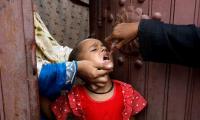Pakistan’s runaway population is impacting every aspect of its survival, straining resources in health, education, nutrition, environment, housing, and mobility.
The country has failed significantly in family planning and population management, and must accept responsibility for rising poverty, illiteracy, homelessness, and malnutrition, experts told a Citizen’s Population Dialogue.
Organised in collaboration with the Pakistan Medical Association (PMA) on Sunday, experts at the dialogue said the fertility rate in Pakistan should be an urgent concern for authorities, as outdated policies and piecemeal efforts have failed to address the issue.
Pakistan’s fertility rate stands at 3.18 births per woman—the highest in Southeast Asia—compared to Bangladesh’s 1.9 and India’s and Iran’s 2.0. At this rate, Pakistan’s population is projected to reach 710 million in 50 years, up from the current 230 million. Experts warn this unchecked growth is a ticking time bomb, draining the country’s economy, natural resources, and social fabric.
In contrast to population declines in Western countries, Pakistan’s growth trajectory continues unabated despite limited resources. This surge is eroding Pakistan’s resources and stifling its economic and social progress.
While population management should be a national priority, Pakistan’s leaders have largely neglected it. Concerned citizens have now organised a platform to spark dialogue on the issue. Renowned economist Dr Kaiser Bengali will address the imbalance between Pakistan’s population and economy. Dr Rahat Qureshi, an experienced gynecologist, underscores the unmet needs for family planning and emphasizes the importance of comprehensive reproductive health services across the country.
Nikhat Sattar, a professional engineer and Islamic scholar, advocates for family planning reforms, including prohibiting early-age marriage, counseling couples before marriage, valuing children of any gender, and fostering respect for women.
Dr. Nighat Shah, head of the gynecology department at Jinnah Postgraduate Medical Centre (JPMC), will discuss the challenges multiparous women face and the role of academia in leading family planning initiatives.
This seminar aims to engage with the roots of Pakistan’s population burden by inviting insights from four diverse speakers, along with the perspectives of attendees. Organizers hope the event will foster a productive discourse on effective population management.
Former Prime Minister Benazir Bhutto at an election rally in Rawalpindi shortly before she was killed, December 27,...
The leader of the opposition in the Karachi Metropolitan Corporation City Council, Saifuddin Advocate of the...
The representational image shows school children learning at a private school in Pakistan. — AFP/FileThe Sindh...
The Sindh High Court building in Karachi. — SHC website/FileThe Sindh High Court has granted bail to a man in a...
Members of Christian community offer Christmas prayers at a church. — APP/File Christians in Karachi celebrated...
A representational image showing ambulances parked at an incident site. — AFP/FileA police official and another...







